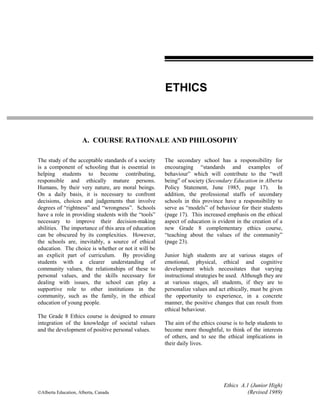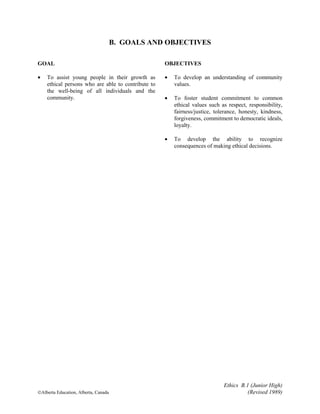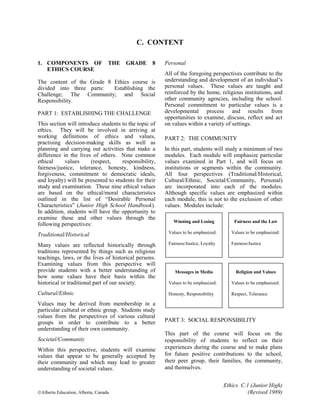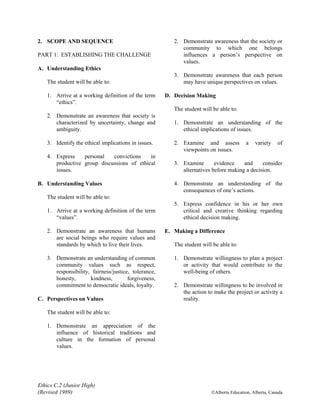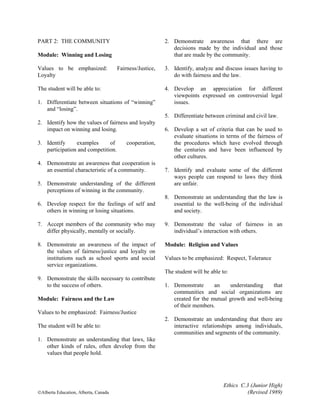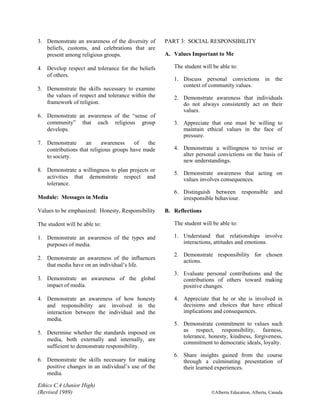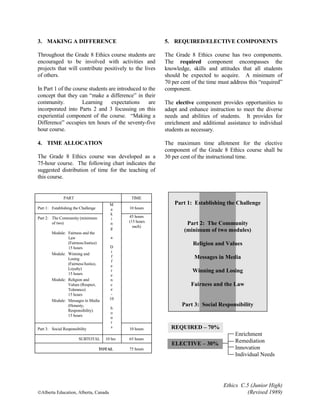This document provides an overview of the Ethics A.1 course for junior high students in Alberta, Canada. It discusses the rationale for teaching ethics in schools, which is to help students become contributing, responsible members of society by providing them with an understanding of community values and decision-making skills. The course aims to integrate knowledge of societal values with the development of positive personal values. It is divided into three parts that establish an understanding of ethics and values, examine values within the community, and focus on social responsibility. The goals are to assist students' growth as ethical people and develop an understanding of values like respect, responsibility and fairness.
